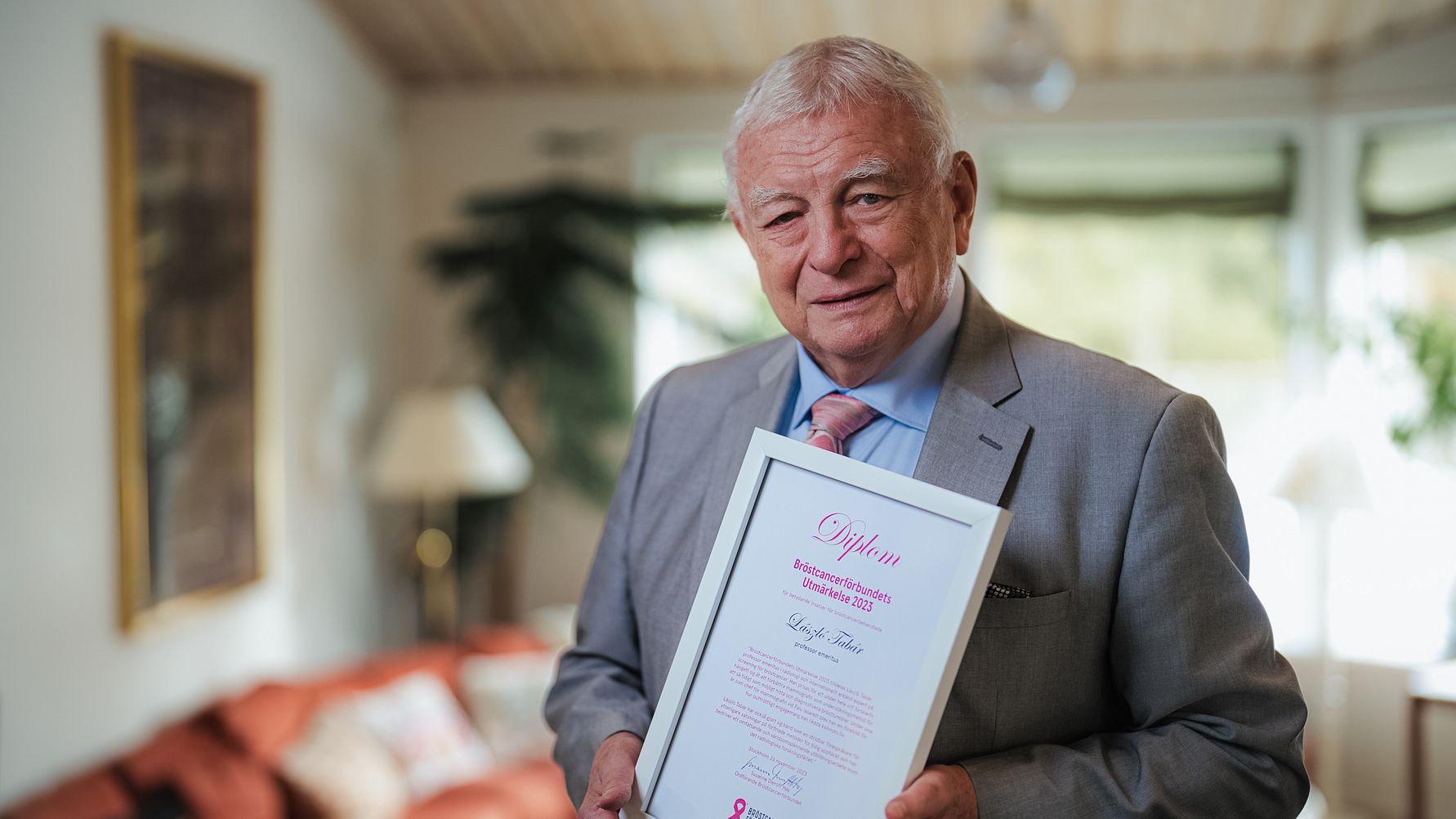The 2023 Breast Cancer Society Award was presented to László Tabar, professor emeritus of radiology and an internationally recognized expert in breast cancer screening.
Throughout his research career, he championed the importance of early detection of breast cancer and held hundreds of training courses to increase the knowledge of doctors and nurses.
And now he has been recognized by the Breast Cancer Society for his tireless work in early diagnosis.
– I feel very proud, – says László Tabar, who has just turned 80 years old, on the occasion of his birthday being celebrated by his colleagues all over the world.
László Tabar received the Breast Cancer Society Award in 2023 because he “devoted himself throughout his research career to improving mammography as a screening method to find breast tumors and diagnose them as early as possible.” During his years as head of the Department of Mammography at Valo Hospital, he became a role model Role model of how diligent commitment can save women’s lives.The justification also underscores his wide-ranging and global educational work in the field of radiological research.
László Tabar was educated at the University of Pécs in southern Hungary, completed his thesis at the age of 33, and was recruited to Sweden in 1976 to lead the pioneering Swedish study that would prove the benefit of mammography. The background was political pressure, especially from female ministers in Olof Palme’s government. They drew attention to the first randomized study in the United States that showed a 30 percent reduction in breast cancer deaths using mammography. As the only radiologist in Europe who presented his thesis on the topic “Radiographic signs of early breast cancer”, László Tabar became sought after by the Swedish scientific mission.
– I explained to them that I lived behind the Iron Curtain and that it might not be that easy, but they did not give up, and in April 1977 I installed myself in the Valo Hospital.
Initially, five counties were to be included in the Swedish study, but at this time there was considerable doubt about participation, and in the end two remained – Dalarna and Östergötland.
“I trained everyone right away and got everything I wanted to do,” he says of his time in Dalarna. The staff at Fallon were amazing, they really became my friends.
We already know that the study strongly demonstrated the importance of screening, and nowadays Laszlo Tabar prefers to use the concept of early diagnosis, which can also include automated ultrasound and MRI. He is optimistic about the future and excited about all that so-called precision medicine has to offer.
-For me, it is very important that the methods are scientifically proven. Thanks to automated ultrasound, we were able to find 30 percent more tumors in women with dense breasts in several studies, including the study in Stockholm*, which was very successful.
As the son of a teacher, László Tabar claims that he loved teaching with him from an early age. Since 1986, he has annually trained more than a thousand doctors at his educational institute in Arizona. It seems that the energy does not diminish in any way. In the past two years, he has published ten comprehensive scientific articles.
-I still work 14 hours a day, and I have accumulated a lot of knowledge that it is my duty to share. And if, like me, you have access to large amounts of data, research should be prioritized.
As a practicing physician, he has seen thousands of cancer patients.
– It gives experience – and humility.
Susanne Deroff-Hay, President of the Breast Cancer Society, believes it is important to pay attention to the fanatics and pioneers who have long fought to improve Swedish breast cancer care.
The 2023 Breast Cancer Society Award goes to a legend in breast cancer screening, she said. Laszlo Tabar’s efforts in mammography and early detection of breast cancer in Sweden cannot be overestimated.
The Breast Cancer Society award is presented in collaboration with AstraZeneca.
* Brigitte Wilczek, Henrik E. Wilczek, Lawrence Rasoulian, Karen Livland. Adding automated 3D breast ultrasound to screening mammography in women with heterogeneous and very dense breasts: a report from a hospital-based, high-volume, single-center breast cancer screening program. Eur J Radiol. 2016 Sep;85(9):1554–63.

“Extreme tv maven. Beer fanatic. Friendly bacon fan. Communicator. Wannabe travel expert.”









More Stories
Why Rare Earth Metals for Electric Cars Are Crucial for Modern Mobility
“We want to promote critical rules approach”
“A lot happened during the trip,” Jönköping County Council